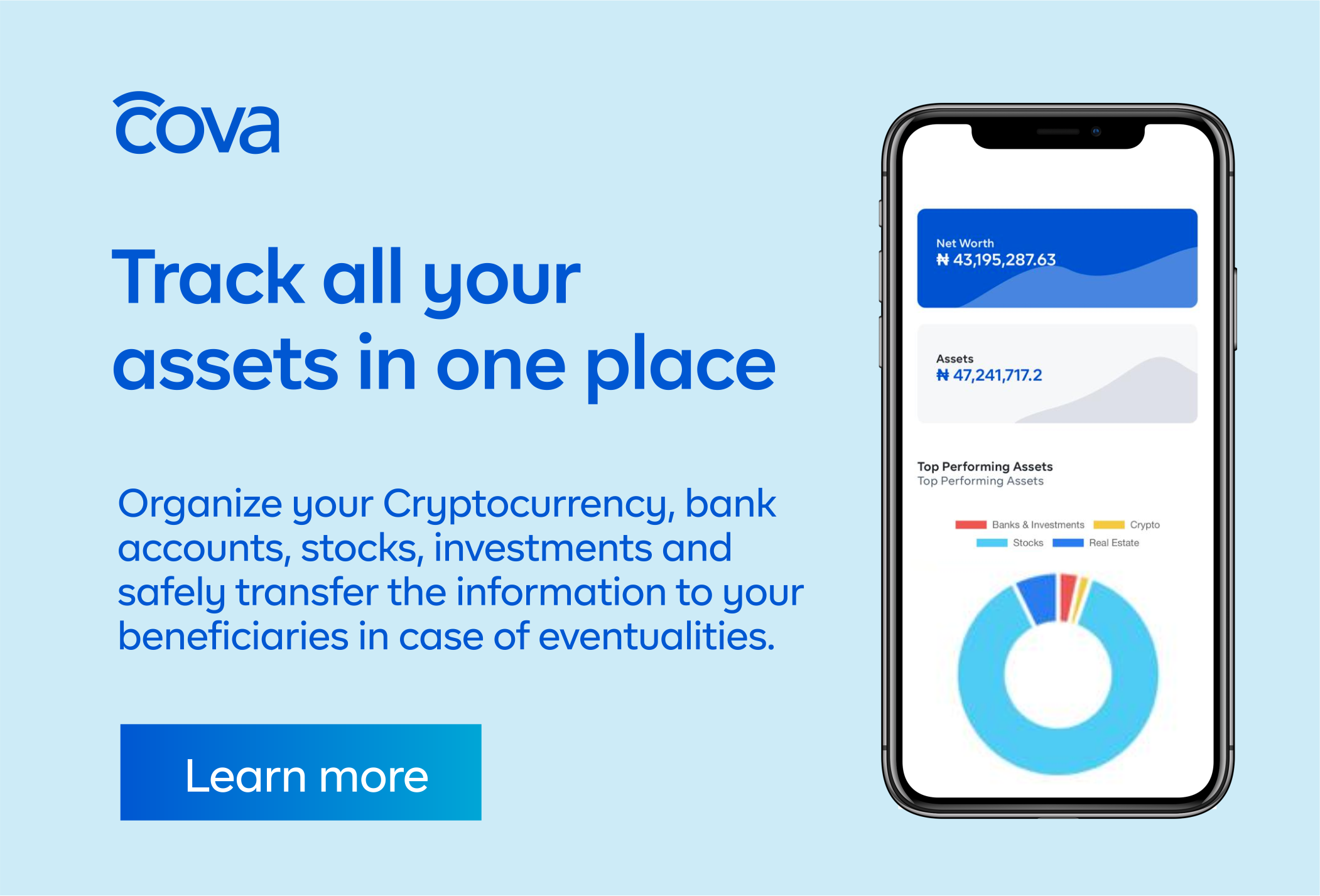A Simple Step by Step Approach to getting started
For most people, their estate planning is focused on traditional assets like real estate, mutual funds, gold, stocks, bank account, etc. Today, people own more digital assets than ever before, making the process a bit more complex. Like many others, you are likely asking yourself, “How do I work on proper estate planning or inheritance planning for my Cryptocurrencies?”. Here are few simple steps you can take.
Track everything:
The first step to planning is knowing what you own, where they are, and what they are worth. Track all your assets in one place, bring everything you own together and track their value. Tracking helps you to have a clear view of every asset you own. Cova app makes this process super easy.
Have a plan from day one.
Your choice of how you invest in Cryptocurrencies should be informed by your level of experience, security, and most importantly, how you plan to pass the assets to your heir in the event of death.
Exchanges:
Most exchanges Coinbase, Xapo, Bitfinex, Kraken, Binance are centralized, with your funds and Crypto assets in an account where you can trade between local currency cryptocurrency. Your choice of how you want to manage your crypto investment should inform where and how you invest. Exchanges like Coinbase have wallets. Most of these are “hosted wallets, and they have a process of transferring account ownerships if beneficiaries/next of kin can prove their identity and the death of the account owner. Let this information guide your choice of exchange. However, important to note that if your beneficiaries don’t have the information about the existence of those Crypto investments, there’s no way they would be able to claim access. Never count on an exchange to contact your family; there’s no way for them to know you’ve passed. If you a new to crypto investing, we advise you to use exchanges to trade.
Wallets
If you’re using a hardware wallet, you own your own keys. Then it’s a lot more complex. What you first need to do is ensure that your wallet is backed up. (If you have not backed up your wallet, top reading this article and do that backup right away). Next is to make a list of what your heir needs to know;
What do your heirs need to know?
- The name of the wallets you use
- Where your wallet backups are kept.
- The name of the software you use. (This is important if you use a single wallet for more than one crypto asset)
- If you use an encryption password for paper wallets or a passphrase for seeds, your beneficiaries must know this too.
Devices
If you use hardware devices to hold your Crypto assets, your heir must know which device you use. There are chances that you stored copies of your keys on the device, and your heirs must know the device, so they don’t throw it away, donate it or destroy the device. Should you give them all access codes and information? No. You can store that information in your Cova account and then set your protocol to pass the information to them if you pass away.
Your Letter
Create a letter with instructions on how to access your Crypto, store it in a safe place where your heir can only access it after you are gone. Cova’s Vault feature is an excellent tool for this. You can set your Cova account to share access and other information with your loved ones if you don’t log in within a certain period.

